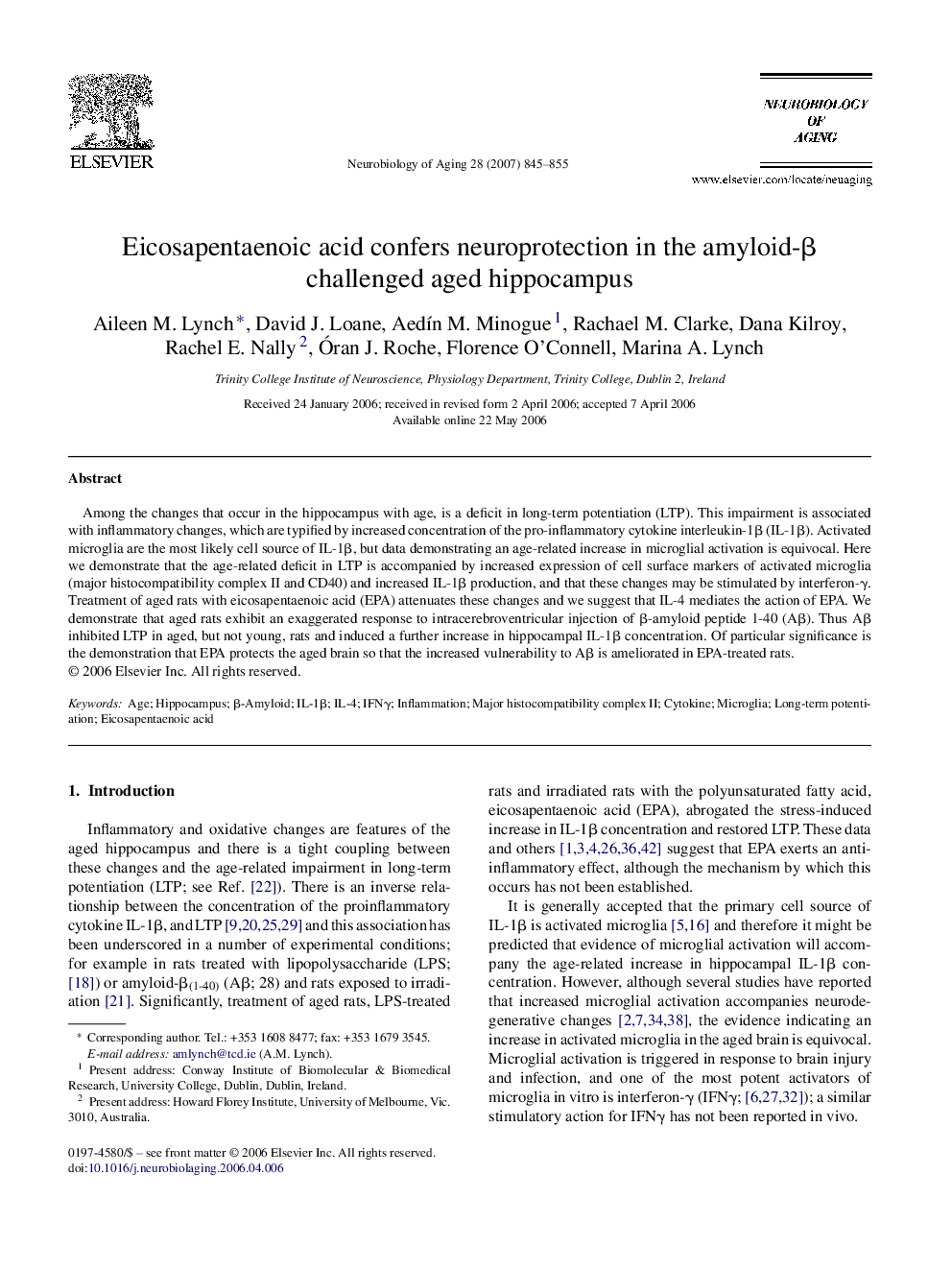| Article ID | Journal | Published Year | Pages | File Type |
|---|---|---|---|---|
| 331380 | Neurobiology of Aging | 2007 | 11 Pages |
Among the changes that occur in the hippocampus with age, is a deficit in long-term potentiation (LTP). This impairment is associated with inflammatory changes, which are typified by increased concentration of the pro-inflammatory cytokine interleukin-1β (IL-1β). Activated microglia are the most likely cell source of IL-1β, but data demonstrating an age-related increase in microglial activation is equivocal. Here we demonstrate that the age-related deficit in LTP is accompanied by increased expression of cell surface markers of activated microglia (major histocompatibility complex II and CD40) and increased IL-1β production, and that these changes may be stimulated by interferon-γ. Treatment of aged rats with eicosapentaenoic acid (EPA) attenuates these changes and we suggest that IL-4 mediates the action of EPA. We demonstrate that aged rats exhibit an exaggerated response to intracerebroventricular injection of β-amyloid peptide 1-40 (Aβ). Thus Aβ inhibited LTP in aged, but not young, rats and induced a further increase in hippocampal IL-1β concentration. Of particular significance is the demonstration that EPA protects the aged brain so that the increased vulnerability to Aβ is ameliorated in EPA-treated rats.
